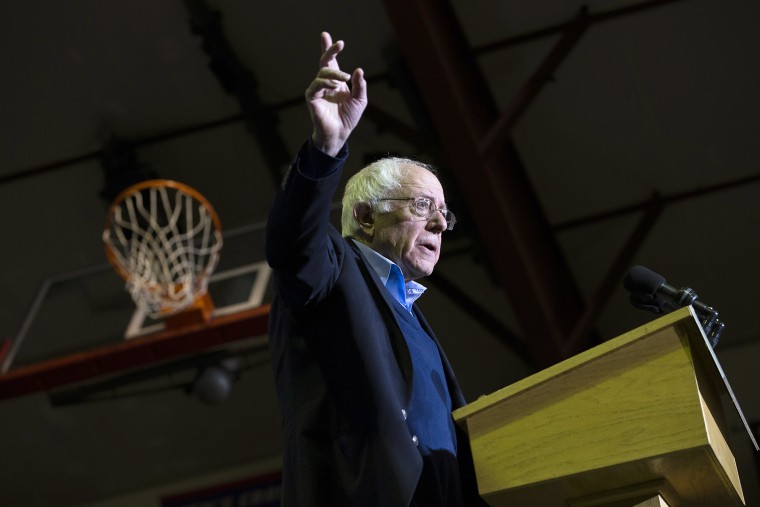Bernie Sanders makes no secret of his plan to raise taxes on much of the public, but the Vermont senator believes it's necessary. His ambitious and progressive platform -- including single-payer health care and free college tuition -- isn't cheap, and a Sanders administration wouldn't try to simply add the costs to the national debt.
But the New York Times reported yesterday that some "liberal-leaning economists" who share Sanders' goals have begun to "question his numbers." Austan Goolsbee, formerly chairman of President Obama's Council of Economic Advisers, now at the University of Chicago, told the Times that the Sanders campaign's numbers "don't remotely add up."
When one progressive analyst called Sanders' platform "puppies and rainbows," Goolsbee said the assessment doesn't go nearly far enough. The numbers have actually "evolved into magic flying puppies with winning Lotto tickets tied to their collars," the progressive economist added.
And while that's a great quote, what really stood out for me was this.
Jared Bernstein, the former economic adviser to Vice President Joseph R. Biden Jr. who is now at the liberal Center on Budget and Policy Priorities, examined a paper by the economist advising Mr. Sanders, Gerald Friedman of the University of Massachusetts at Amherst, that is circulating on the left. While calling Mr. Friedman's work a good effort, Mr. Bernstein cited several assumptions as "wishful thinking." Among them were minimal health-cost inflation, economic growth reaching 5.3 percent and, in that heated-up economy, no action from the Federal Reserve to apply brakes.
And that gives me pause.
Last summer, Jeb Bush got the ball rolling on wishful economic thinking, vowing to create 4% GDP growth in his first term as president. The Florida Republican admitted at the time the figure wasn't based on any meaningful policy analysis; he just liked the sound of 4% growth, so it became a centerpiece of his campaign.
Others quickly chimed in. Chris Christie also promised 4% growth. Scott Walker said he could get that figure to 4.5%. None of these numbers related to anything other than bravado rhetoric; candidates were simply pulling numbers out of the air.
To be sure, Sanders is approaching the debate with greater seriousness -- his numbers aren't just made up, for example -- but he's nevertheless pointing to projections that are incredibly optimistic.
In order for Sanders' numbers to add up, he's expecting the economy to grow at 5.3%. To put that in perspective, how many modern presidents -- from either party -- have seen 4% growth during their tenures? None. Literally, not a single one. Not Clinton, not Obama, not Reagan, no one has achieved growth that high. If any of them did, it's awfully likely the Fed would raise interest rates, deliberately cooling growth out of inflationary fears.
I'll gladly concede that many of Sanders' domestic priorities would help the economy enormously. I have no idea how some of these measures would get through Congress, but if the point is that investments in infrastructure, for example, will boost economic growth, I completely agree.
But if Sanders makes his numbers add up by assuming 5.3% growth, there's a problem with this plan. Republicans were derided -- by among others, me -- for overly rosy projections that were simply unrealistic, and it's only fair to subject Sanders' agenda to the same scrutiny.
